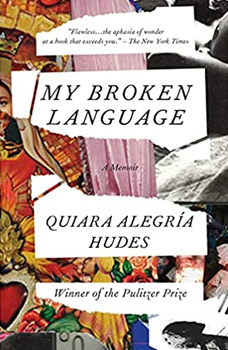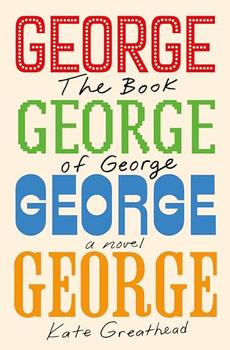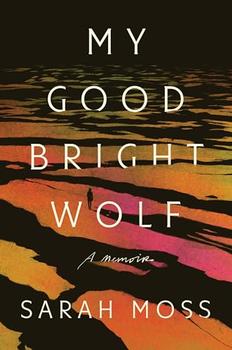Page 4 of 5
There are currently 35 member reviews
for My Broken Language
-
Marilyn T.
Review not rated
RE: What aspects of the author's ...
As a bookworm, I relished Quiara's love of books and stories. It was nurtured by her mother and teachers like the AP English teacher who reads poetry aloud, "intoning phrases as though they cast spells" [p158]. And, reflecting on her beloved cousin Nuchi's illiteracy, Quiara wonders who she might have been if she had not met beloved favorites like Invisible Man; Beloved; and The House on Mango Street.
I also related to Quiara's candid, empowering feminism. "In middle school I learned despising one's boobs, body hair, and ass was American as apple pie."[p303]. Sadly Quiara's observation still holds true; though a few pages on, she ends on an inspiring note: "By naming our pain and voicing our imperfections, we declare our tremendous survival."[p313]
-
ssh
Review not rated
RE: If your family's story is not ...
I think it can be positive (freeing is not really how I see it) but also daunting. Stories that were openly shared make beautiful memories. Past generations in my family sometimes kept things private though. I cringe now if I hear private things openly shared. I prefer to respect the wishes from when people were alive.
-
Marcia S
Review not rated
RE: Do you agree that non-white citizens...
There are problems to overcome for those of other nationalities. Some of it is due to lack of opportunity, a definite truth. A quote from page 135 states, "I'd visited enough Center City friends, spent enough time with dad in the burbs to know that this shitstorm, this run-0n tragedy, was not everyone's America. Seeing my cousins suffer was anguish enough. Seeing the disproportionality stayed me."
There is much truth in that quote. However, children must be made aware that they can achieve and not always be "victims."
-
PinkLady
Review not rated
RE: Quiana's relationships with her...
Quiara's relationship with her cousins reminds me of mine. The great things about counsin/friends is that they know you and your life better than regular friends. They understand why you react to things the way you do, why you behave they way you do and why you are the person you are. I think they were especially important to her because her culture is such a critical part of her life and they share that culture.
-
louisee
Review not rated
RE: Do you agree that non-white citizens...
I agree non-white citizens tend to have it harder going through life. I like what Maggie had to say about her town and Hispanic citizens. As my sons got older they realized how different nationalities were treated and saw how whites got away with a lot more which informed me. In my first few jobs out of college I observed how not all people were treated fairly. And now working with children I work on treating each students without prejudice.
-
beckys
Review not rated
RE: Quiara talks about being a "god...
I definitely relate to this phrase, I was raised Southern Baptist, attended Presbyterian, Methodist, Assembly of God, and Catholic churches in my life, always looking to find what I really believed in. I joined and raised my family in the Methodist church as an adult, and remember finally feeling like I was living what I truly believed in, when I changed to that denomination. I understand why people don't subscribe to organized religion, though, and believe you can be a Christian without a church...just by living your daily life to be a witness to a christlike walk. But I think a lot of people are constantly looking for truth, hence "shopping" for God
-
dorinned
Review not rated
RE: Were you surprised at how easily ...
I did not move as a child. I grew up in a rural setting - my father was a farmer. I do not think it would be difficult to assimilate to a rural setting, having lived almost my entire life as an adult in the city. The truth is, whether as a child or as an adult, one can assimilate to one's setting by simply making up one's mind to do so.




